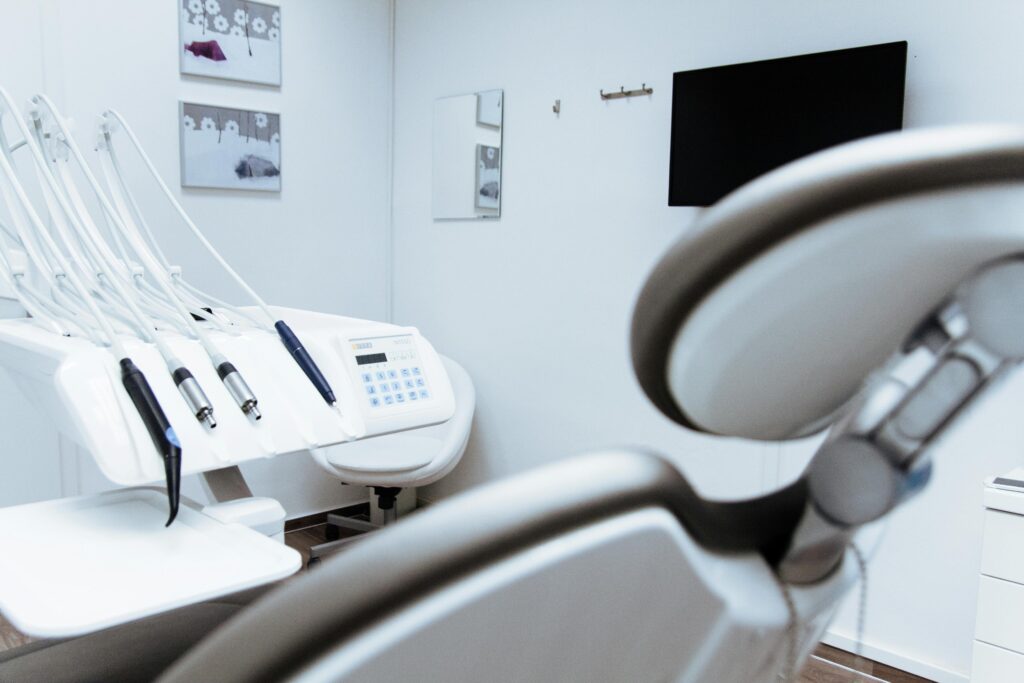Table of Contents
Introduction
Artificial Intelligence (AI) is rapidly becoming a cornerstone of modern healthcare in the United States. From hospitals to research labs, AI’s innovative capabilities are transforming how healthcare professionals diagnose, treat, and manage patients. The healthcare industry is witnessing improved patient outcomes, streamlined operations, and enhanced efficiency by leveraging machine learning algorithms, natural language processing, and other AI technologies. This blog delves into the key ways AI is revolutionizing healthcare in America, its various applications, and the profound impact it has on patient care.

1. How1. How is Artificial Intelligence Transforming Healthcare?
Artificial Intelligence is fundamentally changing healthcare by providing advanced tools for medical diagnosis, patient monitoring, personalized treatment, and administrative efficiencies. Some of the critical areas where AI is making a significant impact include:
1.1 Enhanced Diagnostic Accuracy
Artificial Intelligence algorithms are capable of analyzing medical images, such as X-rays, MRIs, and CT scans, with a high level of precision. For instance, AI-powered diagnostic tools can detect anomalies in radiology images faster and more accurately than human radiologists, reducing the likelihood of misdiagnosis. A notable example is the use of AI in detecting breast cancer. Google Health’s AI model demonstrated a 9.4% reduction in false negatives and a 5.7% reduction in false positives compared to human experts.
1.2 Predictive Analytics for Early Disease Detection
Artificial Intelligence’s predictive analytics capabilities enable healthcare providers to anticipate the onset of diseases based on historical data and real-time health metrics. For example, AI systems can predict the likelihood of sepsis in patients by analyzing vital signs and laboratory results, allowing for timely interventions. Predictive models are also being used to forecast patient readmissions, optimize hospital resource allocation and improve patient care.
1.3 Personalized Treatment Plans
AI-driven platforms analyze vast amounts of data to tailor treatment plans to individual patients. By considering genetic information, lifestyle factors, and other health-related data, AI can recommend personalized treatment protocols. This approach ensures that patients receive the most effective therapies with minimal side effects, leading to better health outcomes. IBM Watson for Oncology, for example, uses AI to recommend personalized cancer treatment options, considering various data points from clinical trials and patient history.
1.4 Virtual Health Assistants and Telemedicine
AI-powered virtual assistants are transforming patient care by providing 24/7 support for medical inquiries, medication reminders, and appointment scheduling. These digital health assistants can interact with patients, answer their questions, and offer personalized advice based on their health records. Additionally, AI is enhancing telemedicine platforms by facilitating remote monitoring of patient’s vital signs and providing real-time diagnostic support to physicians during virtual consultations.
1.5 Automation of Administrative Tasks
Artificial Intelligence streamlines administrative tasks, such as medical coding, billing, and appointment scheduling, by automating repetitive processes. This automation reduces administrative burdens on healthcare professionals, allowing them to focus more on patient care. For example, AI-driven chatbots handle patient inquiries and scheduling, while natural language processing (NLP) algorithms assist in medical transcription and documentation.

2. How is Artificial Intelligence Used in Healthcare in the US?
The United States is at the forefront of implementing AI in healthcare, with numerous hospitals, research institutions, and healthcare providers leveraging AI technologies to improve patient care. Here are some prominent use cases of Artificial Intelligence in US healthcare:
2.1 AI in Medical Imaging
Medical imaging is one of the most common applications of AI in healthcare. AI algorithms can quickly analyze and interpret complex medical images, aiding radiologists in diagnosing diseases such as cancer, heart conditions, and neurological disorders. Companies like Zebra Medical Vision and Aidoc are pioneers in developing AI solutions that assist radiologists in interpreting imaging data more accurately and efficiently.
2.2 AI in Electronic Health Records (EHRs)
Artificial Intelligence is transforming the management of electronic health records by streamlining data entry, reducing errors, and improving data accessibility. EHR systems integrated with AI can automatically extract relevant patient information from clinical notes, reducing the time healthcare professionals spend on documentation. Epic Systems and Cerner are leading EHR vendors incorporating AI features to enhance clinical workflows and decision-making.
2.3 AI in Drug Discovery and Development
Artificial Intelligence is accelerating the drug discovery process by analyzing vast datasets to identify potential drug candidates and predict their efficacy. AI models can simulate how different drug compounds interact with specific targets, reducing the time and cost associated with traditional drug discovery methods. Companies like Insilico Medicine and Atomwise are leveraging AI to develop novel drugs for various medical conditions, including cancer and neurodegenerative diseases.
2.4 AI in Chronic Disease Management
AI-powered wearable devices and mobile health apps enable continuous monitoring of patients with chronic conditions, such as diabetes, hypertension, and heart disease. These devices collect real-time data, which is analyzed by Artificial Intelligence algorithms to detect patterns and anomalies. Healthcare providers can use this information to make informed decisions, adjust treatment plans, and provide timely interventions, improving patient outcomes and reducing hospitalizations.
2.5 AI in Robotic Surgery
AI-powered robotic systems are enhancing surgical precision and minimizing invasiveness. Robotic surgery, guided by AI, allows surgeons to perform complex procedures with greater accuracy and control. The da Vinci Surgical System, for example, utilizes AI to assist surgeons in performing minimally invasive surgeries, resulting in reduced recovery times and fewer complications for patients.

3. What is the Impact of Artificial Intelligence in Healthcare?
The integration of Artificial Intelligence into healthcare has profound implications, ranging from improved patient care to significant cost savings. Here are some of the key impacts of Artificial Intelligence in healthcare:
3.1 Improved Patient Outcomes
AI’s ability to analyze vast amounts of medical data enables early detection of diseases, accurate diagnoses, and personalized treatment plans, leading to improved patient outcomes. For example, AI algorithms used in oncology can identify cancerous cells at an early stage, allowing for timely interventions and increased survival rates.
3.2 Enhanced Operational Efficiency
Artificial Intelligence streamlines administrative processes reduces paperwork, and automates repetitive tasks, freeing up healthcare professionals to focus on patient care. This enhanced efficiency results in reduced wait times, optimized resource allocation, and improved patient satisfaction. Hospitals using AI-driven systems report increased efficiency in managing patient flow and hospital resources.
3.3 Cost Savings
AI’s predictive analytics capabilities help prevent hospital readmissions, reduce medical errors, and optimize treatment plans, leading to significant cost savings for healthcare providers. A study by McKinsey estimates that AI could save the US healthcare system up to $150 billion annually by 2026 through efficiency improvements and reduced healthcare costs.
3.4 Better Patient Engagement and Experience
AI-powered virtual assistants and chatbots enhance patient engagement by providing instant responses to medical inquiries and personalized health advice. This increased interaction helps patients better understand their health conditions, adhere to treatment plans, and actively participate in their healthcare journey.
3.5 Support for Medical Research and Innovation
AI accelerates medical research by analyzing large datasets, identifying patterns, and generating valuable insights. This support for research and innovation leads to the development of new treatments, therapies, and medical technologies, pushing the boundaries of what is possible in healthcare.

4. Case Studies
4.1 Mayo Clinic: AI in Radiology
The Mayo Clinic, a leading healthcare institution, has integrated AI into its radiology department to enhance diagnostic accuracy and efficiency. By using AI algorithms to analyze medical images, the Mayo Clinic has reduced the time required to interpret scans and improved the accuracy of detecting conditions such as lung cancer and brain tumors. This AI-driven approach has led to faster diagnoses, enabling timely treatment for patients.
4.2 Cleveland Clinic: Predictive Analytics for Heart Disease
Cleveland Clinic has implemented AI-powered predictive analytics to identify patients at risk of heart disease. By analyzing patient data, including vital signs, medical history, and lifestyle factors, AI algorithms can predict the likelihood of cardiac events. This proactive approach allows healthcare providers to implement preventive measures, reducing the incidence of heart attacks and improving patient outcomes.
4.3 Memorial Sloan Kettering Cancer Center: AI for Personalized Cancer Treatment
Memorial Sloan Kettering Cancer Center utilizes IBM Watson for Oncology to provide personalized cancer treatment recommendations. The AI system analyzes patient medical records, research articles, and clinical trials to recommend tailored treatment options based on each patient’s unique profile. This approach ensures that patients receive the most effective treatments, improving their chances of recovery.
4.4 Mount Sinai Health System: AI in COVID-19 Detection
Mount Sinai Health System employed AI to detect COVID-19 from CT scans of the lungs. The AI model, trained on thousands of CT images, was able to accurately identify COVID-19 cases, even in asymptomatic patients. This technology proved invaluable during the pandemic, allowing for rapid screening and isolation of infected individuals to prevent the spread of the virus.
4.5 Kaiser Permanente: AI in Chronic Disease Management
Kaiser Permanente uses AI-powered wearables and mobile health apps to monitor patients with chronic diseases, such as diabetes and hypertension. The AI system analyzes real-time data from these devices, alerting healthcare providers to any abnormalities or potential health risks. This continuous monitoring enables timely interventions, reducing the need for hospital visits and improving the quality of life for patients.
Conclusion
Artificial Intelligence is undeniably transforming the healthcare landscape in the United States. Its ability to analyze large datasets, provide accurate insights, and automate processes is driving significant advancements in diagnostics, patient care, and medical research. As AI technologies continue to evolve, their integration into the healthcare system will only become more pronounced, leading to a smarter, more efficient, and patient-centric healthcare ecosystem.
The future of healthcare lies in leveraging AI to improve patient outcomes, reduce costs, and make healthcare accessible to all. By embracing these technological innovations, the U.S. healthcare industry can continue to set global standards for excellence in patient care.
How is artificial intelligence transforming healthcare?
AI is transforming healthcare by enhancing diagnostic accuracy, personalizing treatment plans, enabling predictive analytics, streamlining administrative tasks, accelerating drug discovery, and improving surgical precision. AI-driven tools and technologies provide healthcare providers with deeper insights, leading to improved patient outcomes, reduced costs, and increased operational efficiency.
How is AI used in healthcare in the US?
In the U.S., AI is used extensively in various healthcare applications, including diagnostic imaging, personalized medicine, predictive analytics, robotic surgery, and virtual health assistants. Hospitals and clinics are implementing AI-powered tools to enhance patient care, optimize workflows, and manage healthcare data effectively.
What is the impact of artificial intelligence in healthcare?
AI’s impact on healthcare is profound. It has improved diagnostic accuracy, enabled early disease detection, personalized patient care, streamlined administrative processes, and accelerated drug development. AI has also facilitated remote patient monitoring and virtual care, making healthcare more accessible and efficient. Overall, AI is enhancing the quality of care while reducing costs and improving patient outcomes.